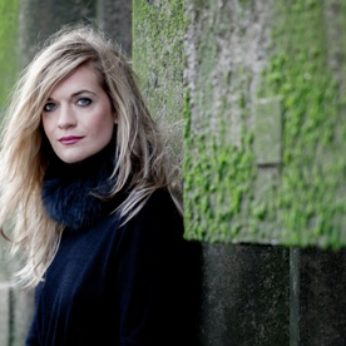Composer: James MacMillan (b. 1959)
Performance date: 01/07/2014
Venue: St. Brendan’s Church
Composition Year: 1984/1994/1995
Duration: 00:14:23
Recording Engineer: Richard McCullough, RTE
Instrumentation: S-solo, pf
Instrumentation Category:Duo
Artists:
Julius Drake -
[piano]
Ruby Hughes -
[mezzo-soprano]

William
Soutar [1898-1943] is one of the greatest poets Scotland has produced just as
James MacMillan is one of Scotland’s greatest composers. Soutar contracted
spondylitis while serving in the Navy and spent the last twelve years of his
life bed-ridden. Much of Soutar’s poetry is steeped in Scottish folk tradition,
particularly the old ballads, and he even created his own blend, for poetic
purposes, of Scottish dialects that he called synthetic Scots.
These
three settings each carry a heart-rending impact, in particular MacMillan’s use
of unaccompanied voice, as in traditional song, while creating piano parts that
act almost as a separate commentary rather than as a normal accompaniment, in
particular the sometimes shattering piano postludes. Macmillan’s direct
experience of the Scottish ballad from his time singing in folk clubs gives
authenticity to his beautiful and poignant setting of Ballad. Soutar’s The Children
was his response to the suffering and brutality of the Spanish Civil War
and MacMillan in turn penned a devastating creation. The vocal line is almost
entirely expressionless even child-like and unaccompanied as it tells its
terrible tale, the piano part is stark and bitter until the final outburst.
Scots Song is the title
given here to Soutar’s The Tryst, whose
theme of a ghostly visitor returning to a former lover is the substance of many
ballads. MacMillan later recalled: the
composing and performing of this song made a lasting impression on me. It felt
as if I had tapped into a deep reservoir of shared tradition, as my setting was
quite faithful to the old ballad style. He even came back to the melody in
subsequent works. The piano postlude lets us down gently.
Copyright © 2025 West Cork Music. All rights reserved.
Designed and developed by Matrix Internet